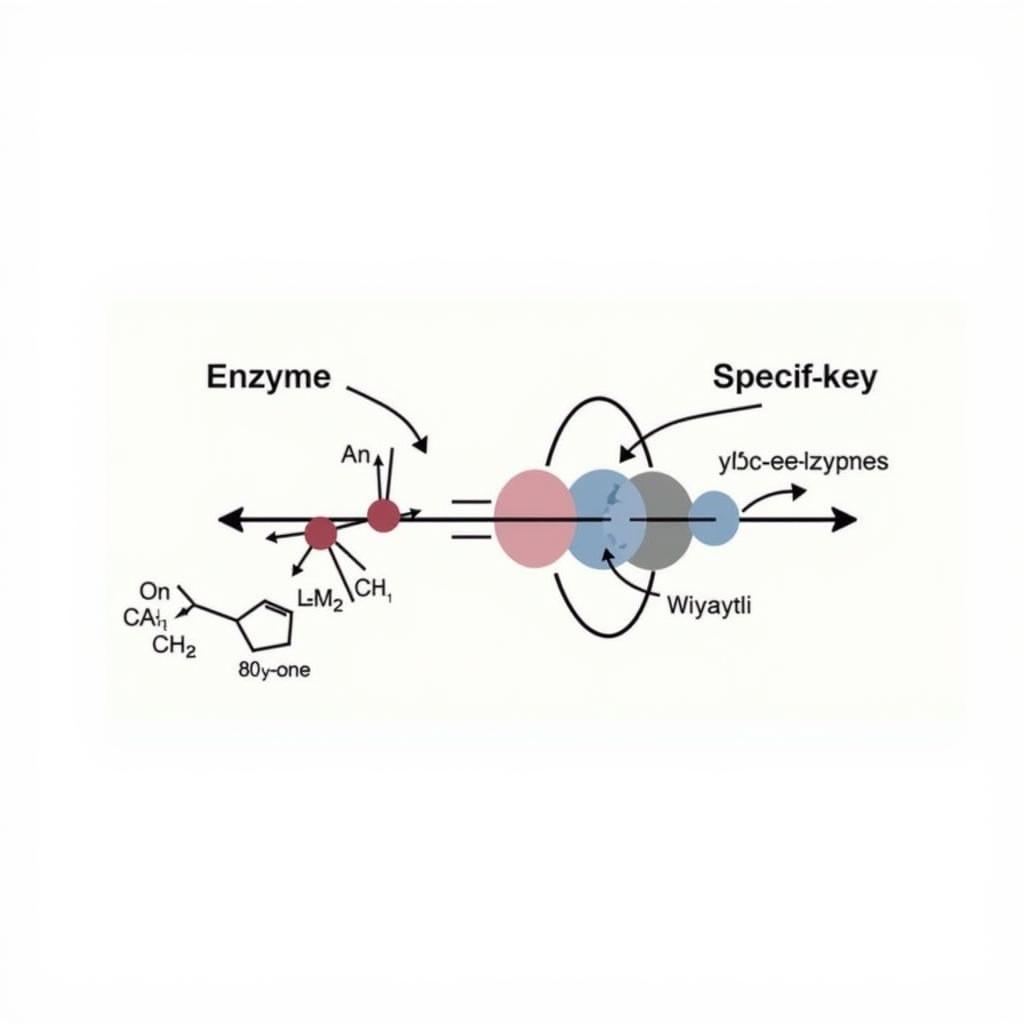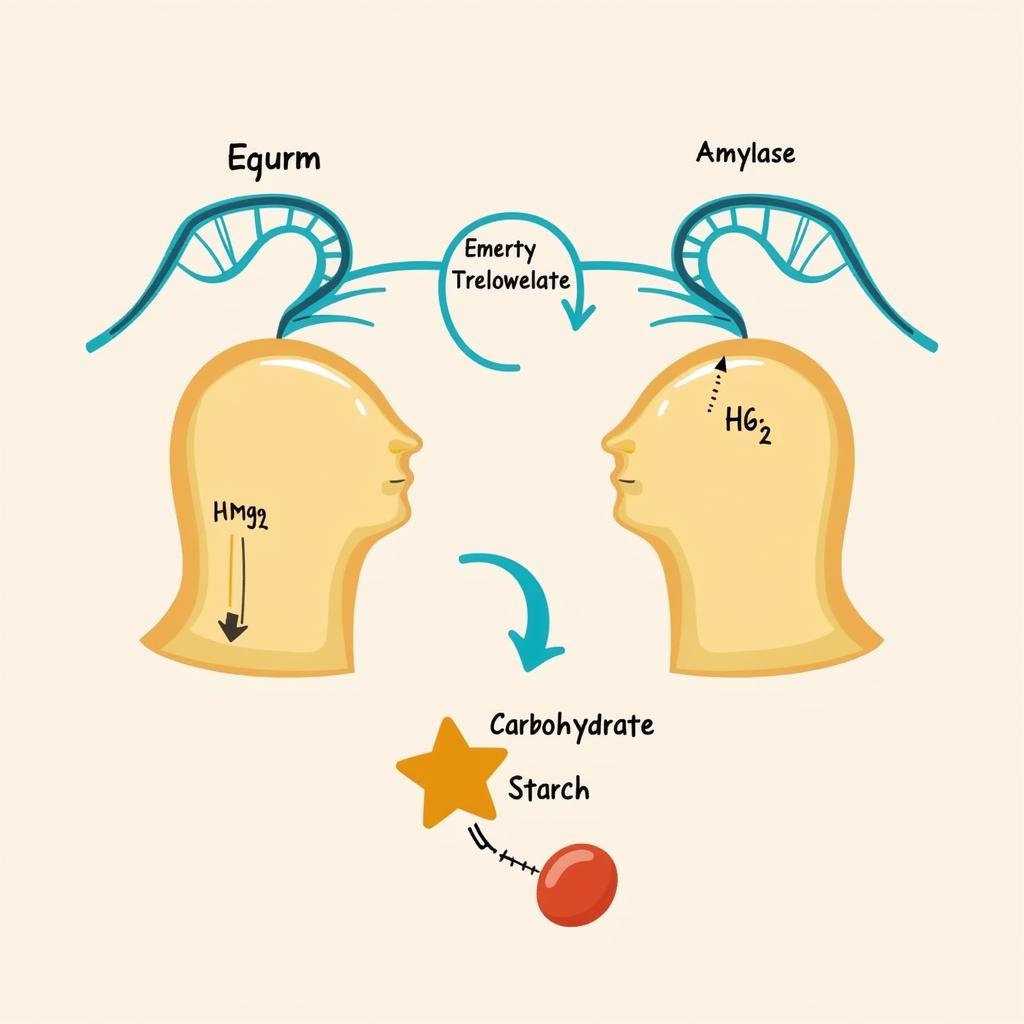Enzymes are essential proteins that act as catalysts, speeding up chemical reactions within living organisms. They are crucial for a wide range of biological processes, from digestion to DNA replication. Understanding enzyme function is fundamental to grasping the complexities of life at a molecular level. One common point of confusion for many students and even some professionals is the distinction between enzymes with names ending in “-ase” and “-ose.” While these suffixes might seem interchangeable, they hold distinct meanings in the world of biochemistry.
Decoding the “-ase” Suffix: Identifying Enzymes
The suffix “-ase” is the hallmark of an enzyme. When you encounter a scientific term ending in “-ase,” it’s a clear indication that you’re dealing with a protein designed to catalyze a specific biochemical reaction. Here’s a closer look at the significance of “-ase”:
- Specificity: Enzymes are highly specific, meaning each enzyme typically interacts with only one type of molecule or a small group of closely related molecules, known as its substrates. The “-ase” suffix helps to signal this specificity.
- Nomenclature: The naming convention for enzymes often involves adding “-ase” to the end of the substrate’s name or to a word describing the reaction the enzyme facilitates. For example, lactase breaks down lactose, and DNA polymerase helps in synthesizing DNA.
- Examples: Some of the most well-known enzymes include amylase (found in saliva, breaks down starch), protease (breaks down proteins), and lipase (breaks down fats).
 Enzyme Action
Enzyme Action
Unraveling the “-ose” Suffix: Carbohydrates Take Center Stage
Unlike “-ase,” the suffix “-ose” primarily indicates a carbohydrate. Carbohydrates are a diverse class of biomolecules that serve as a major source of energy and play structural roles in living organisms. Let’s delve into the significance of “-ose”:
- Sugar Identification: The “-ose” ending is a common way to identify different types of sugars. These sugars can be simple monosaccharides like glucose and fructose or complex polysaccharides like cellulose and starch.
- Structural Variations: The specific arrangement of atoms within a carbohydrate molecule determines its unique properties and function. The “-ose” suffix helps to differentiate these various structures.
- Biological Roles: Carbohydrates are essential for life, providing energy, storing energy reserves, and forming structural components of cells and tissues.
Ase vs. Ose: Why the Distinction Matters
While the difference of a single letter might seem trivial, confusing “-ase” and “-ose” can lead to misunderstandings in a scientific context.
- Accurate Communication: Using the correct terminology is essential for clear communication within the scientific community. It ensures that researchers, students, and educators are all speaking the same language.
- Preventing Misinterpretations: Mistaking an enzyme for a carbohydrate or vice versa could have significant consequences, especially in research or medical settings where precision is paramount.
- Deepening Understanding: Recognizing the distinct roles of enzymes and carbohydrates is key to understanding the intricate workings of biological systems.
FAQs: Ase vs. Ose in Biology
1. Are all enzymes named with the “-ase” suffix?
While the vast majority of enzymes follow the “-ase” naming convention, there are a few exceptions. Some enzymes, like pepsin and trypsin (involved in protein digestion), predate the standardized nomenclature.
2. Can a molecule have both “-ase” and “-ose” in its name?
Yes, some molecules can have both suffixes, but they refer to different parts of the molecule. For instance, “cellulase” is an enzyme that breaks down the carbohydrate “cellulose.”
3. Are all carbohydrates sugars?
While all sugars are carbohydrates, not all carbohydrates are sugars. Complex carbohydrates like starch and fiber are made up of long chains of sugar molecules but don’t taste sweet like simple sugars.
 Enzyme-Carbohydrate Interaction
Enzyme-Carbohydrate Interaction
Contact Us
Need further clarification on “-ase” and “-ose” or other intriguing aspects of biology? Don’t hesitate to reach out to our team of experts. Contact us at Phone Number: 0369020373, Email: [email protected] or visit our office at Thon Ngoc Lien, Hiep Hoa, Bac Giang, Vietnam. We’re available 24/7 to assist you with all your queries!

